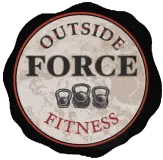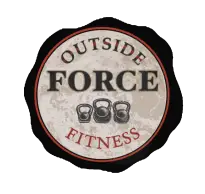This is quite a subject. Every fitness trainer will be asked to give diet advice multiple times per day. And on top of that, full dietary guidelines need to be prescribed for clients seeking big changes in their bodies. Here are the major points that need to be covered.
Calorie Deficit
About two thirds of the people I’ve seen walk into the gym are there to lose weight.
It may be a little or it may be a lot, but there is excess fat somewhere on their body and they want it off.
In order to achieve this, you’ve just got to eat less calories than you burn. It is that simple. You don’t need a trainer or a gym membership or anything. Just. Eat. Less.
It is the simplest thing in the world to understand, but if it were easy, then two thirds of America wouldn’t be overweight or obese.
So what is a personal trainer supposed to say aside from “You need to eat less calories”?
I’ll usually direct my clients to eat more nutrient-dense foods and less calorie-dense foods.
Nutrient-Dense Foods and Calorie-Dense Foods
One cup of broccoli has about 31 calories. One cup of rice has about 206 calories.
Rice is a more calorie-dense food than broccoli and I would have my overweight client grab the broccoli. We talk about potential meals that they can make that include broccoli and then we’ve got something stable from which to build the rest of the week around.
I love creating meals where you aren’t left hungry or wanting more. You can absolutely fill up with broccoli. Some people like to put some cheese or melt some butter (or plant-based butter) over it and they are in heaven.
Here’s a drill. Grab something that you regularly eat that you know you shouldn’t. Let’s say that it is an Oatmeal Creme Pie, for instance (one of the Little Debbie treats). It has about 25 grams of carbohydrates and, overall, about 170 calories.
Now measure out how much salad you could eat to equal 170 calories. Also do it with broccoli or another healthy vegetable that you like to eat. Do this with a variety of foods.
Then do it with pure sugar. Sugar has 4 calories per gram. So, 170 calories divided by 4 = 42.5 grams of sugar. Measure it and put it out on the counter or table.
When you see a small pile of sugar next to a big bowl of salad, you’ll start to get what I’m saying.
In fact, if you are a personal trainer reading this, you should set up this display at your gym and let people have a look at how much caloric impact one of these little treats packs.
Your clients will thank you, everyone will lose weight and the world will be a better place.
Quality of Food – Organic, Natural, etc.
There are so many different labels that it is hard to tell what is actually real and helpful as opposed to what is just marketing.
Obviously we should eat more organic and natural foods, but in terms of reaching short term goals for an average client, we don’t have to go full organic.
At the beginning, we are trying to develop good habits. Just put things in one at a time. It is almost painful how much detail has to be put on one tiny thing in order to break an old habit.
Trying to switch up every single thing you eat is just too confusing and throws a wrench into the scene. I’ve seen people, with completely good intentions to better their health, throw out all of their junk food and go and replace it with all sorts of organic alternatives. But they weren’t paying too much attention because most of it ended up being carbohydrates and other high-calorie foods.
So they just wasted a bunch of money and time and they’re still fat. This is the problem that I, as a personal fitness trainer, have to help them resolve.
The key is finding one action that will help them start losing weight and feeling better. You’ve got to ask a bit and get into their world, have them keep a diet log for a week and generally invade their privacy. Just a little, though. Don’t do anything weird.
Once you can find the twice-a-day Oatmeal Creme Pie that is adding 340 calories to their daily count, you can then act accordingly to remedy that single situation and work out an alternative that has maybe 40 calories.
And that alternative can be a nice, organic, nutrient-dense snack.
Different Approaches
You can do the above approach, where you take one snack or one meal at a time and fix it. Or you can give a blanket diet plan and they can empty out their refrigerator and buy only what is on the list you give them.
Different approaches work for different people. A good personal fitness trainer will have both options ready. He’s got his full diet plan written out that just needs to be customized for the specific individual in front of him, or he can go the piecemeal approach and fix one meal at a time.
A personal trainer must have the ability to observe the person in front of him and see what approach would work best.
It is also the willingness of both parties (client and trainer) to test one approach and see if it works. Set up some rules and try it out for a week. If the client says that it is impossible, too expensive, that they cheated too much, got hungry too often, or anything like that – just switch it up and go with Plan B.
Every good trainer should have Plans A-F already mapped out (at least in his head) by the end of the first session with a new person.
If your trainer is a one-trick pony, get a new trainer. The experienced guys have all sorts of approaches and they’ve been “experimenting” on their clients for many years. Check with an experienced one to see what they think may work for you.
Or if you are a trainer, be a good learner and admit that you don’t know everything and get some advice. If you’re worried about losing the client, just know that they will leave you anyway. The fact that you called in help is a testament to the fact that you are dedicated to helping them.
That’s what they pay you for.
Should You Take Supplements?
This would be determined based on the approach that the trainer and client take. The trainer may have a full program written up that has no supplements and only foods with one ingredient.
In that case you would just stick to the plan and no supplements would be necessary.
Or, if you’re a young man trying to gain muscle, you’re likely going to recommend that he takes extra protein throughout the day so that his body always has protein available to build muscle.
This is done on a case-by-case basis and I’ve usually used it to help people through specific situations when I’m asking them about their lives and eating habits. Sometimes they just can’t eat from 12:30PM until 7:00PM and they’ve got to have something. I, as the personal trainer, will help them plan out a healthy snack or supplement to make sure that we have planned correctly and it will help them reach their goals.
There is no absolute yes or no answer to that question.
Sometimes trainers also get involved with selling supplements on the side to make extra cash. It may or may not cloud their judgment as to whether or not it is appropriate for you. Just ask them if they get money when you buy their product.
And to be totally honest about my financial interest, this site will eventually make money off of ads and affiliate links – meaning if you click on an Amazon link I put on the site, I’ll get a small percentage of what you purchase.
What Is Your Opinion on Eating Fat?
I have specifically labeled this as an “opinion.”
It seems to be a rather opinionated subject. I can say that I’ve gotten the most results, in terms of fat loss, by incorporating healthy fats into the diet plans of those I train.
That’s right, they ate more fat than they ate before and they lost weight. We were also, of course, exercising.
I’ve had my young men increase their fat intake and had them gain plenty of muscle as well. In fact, I’ve never had someone cut fats out of their diet and then have that be the reason why they were able to reach their goals.
But I’m sure you can find several other sources that say otherwise. I just do what works.
Conclusion
A personal fitness trainer has a lot of tools at his disposal when it comes to diets.
The approach should be different for every client. But you can’t ignore the big parts like calorie deficit and nutrient/caloric density of foods.
A trainer would be dumb to have only one approach for everyone because, honestly, everyone is not the same. And on top of that, some people start acting irrationally when it comes to food. That’s sometimes the cause of their weight problem in the first place.
There are thousands of variations of people and how they react to “being put on a diet.”
To be a fitness trainer, it takes a lot of patience and a willingness to talk about funny subjects. Diet is, actually, a funny subject for some people.
And seeing as how more than 50% of any weight loss program is dependent on diet, it is a subject worth mastering.



